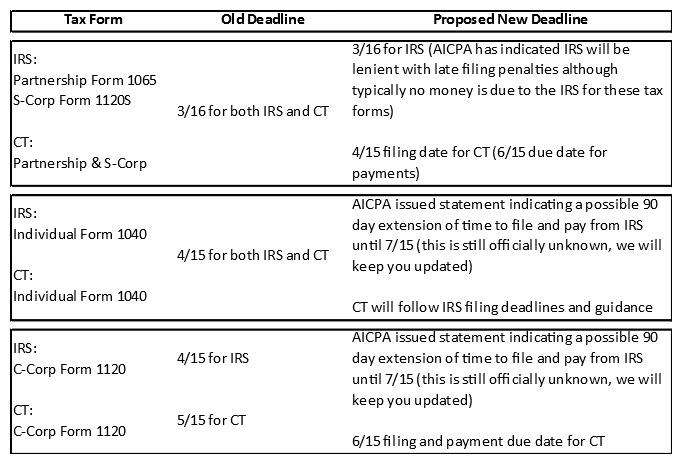Greetings!
As we approach the end of the year there is a new deadline for Beneficial Ownership Information reporting (BOI). Please read if you own 25% or more of an active business, rental real estate or business investments in LLCs, Corporations, Limited Partnerships, and other state authorized entities, or if you exercise substantial influence over important decisions of a reporting company (i.e. a senior officer)
Most existing companies are required to file a beneficial ownership report before December 31, 2024. What follows is a summary of the Corporate Transparency Act and the BOI reporting requirement. Please contact us if you would like more information or think this might apply to you.
Corporate Transparency Act — Beneficial Ownership Information Reporting Requirement
Starting January 1, 2024, an anticipated 32.6 million businesses will be required to comply with the Corporate Transparency Act (“CTA). The CTA was enacted into law as part of the National Defense Act for Fiscal Year 2021. The CTA requires the disclosure of the beneficial ownership information (otherwise known as “BOI”) of certain entities from people who own or control a company. The intent of the BOI reporting requirement is to help US law enforcement combat money laundering, the financing of terrorism and other illicit activity.
Below is some preliminary information for you to consider as we approach the implementation period for this new reporting requirement. This information is meant to be general-only and should not be applied to your specific facts and circumstances without consultation with competent legal counsel and/or other retained professional adviser.
What entities are required to comply with the CTA’s BOI reporting requirement?
Entities organized both in the U.S. and outside the U.S. may be subject to the CTA’s reporting requirements. Domestic companies required to report include corporations, limited liability companies (LLCs) or any similar entity created by the filing of a document with a secretary of state or any similar office under the law of a state or Indian tribe. Domestic entities that are not created by the filing of a document with a secretary of state or similar office are not required to report under the CTA.
Foreign companies required to report under the CTA include corporations, LLCs or any similar entity that is formed under the law of a foreign country and registered to do business in any state or tribal jurisdiction by filing a document with a secretary of state or any similar office.
Are there any exemptions from the filing requirements?
There are 23 categories of exemptions. Included in the exemptions list are publicly traded companies, banks and credit unions, securities brokers/dealers, public accounting firms, tax-exempt entities and certain inactive entities, among others. Please note these are not blanket exemptions and many of these entities are already heavily regulated by the government and thus already disclose their BOI to a government authority. The Small Entity Compliance Guide (found here) has a list of the 23 exemptions, along with answers to many other frequently asked questions.
In addition, certain “large operating entities” are exempt from filing. To qualify for this exemption, the company must:
- a)Employ more than 20 people in the U.S.;
- b)Have reported gross revenue (or sales) of over $5M on the prior year’s tax return; and
- c)Be physically present in the U.S.
Who is a beneficial owner?
Any individual who, directly or indirectly, either:
- Exercises “substantial control” over a reporting company, or
- Owns or controls at least 25 percent of the ownership interests of a reporting company
An individual has substantial control of a reporting company if they direct, determine or exercise substantial influence over important decisions of the reporting company. This includes any senior officers of the reporting company, regardless of formal title or if they have no ownership interest in the reporting company.
The detailed CTA regulations define the terms “substantial control” and “ownership interest” further.
When must companies file?
There are different filing timeframes depending on when an entity is registered/formed or if there is a change to the beneficial owner’s information.
- New entities (created/registered in 2024) — must file within 90 days (hopefully this was done by your attorney when you organized)
- New entities (created/registered after 12/31/2024) — must file within 30 days
- Existing entities (created/registered before 1/1/24) — must file by 1/1/25
- Reporting companies that have changes to previously reported information or discover inaccuracies in previously filed reports — must file within 30 days
What sort of information is required to be reported?
Companies must report the following information: full name of the reporting company, any trade name or doing business as name, business address, state of formation, and an IRS taxpayer identification number.
Additionally, information on the beneficial owners of the entity and for newly created entities, the company applicants of the entity is required. This information includes — name, birthdate, address, and unique identifying number and an image of an acceptable identification document (e.g., a driver’s license or passport).
Risk of non-compliance
Penalties are significant for willfully not complying with the BOI reporting requirement and can result in criminal prosecution and/or civil penalties of $591 per day and up to $10,000.
Here is a link to learn more about FinCen Beneficial Ownership Reporting.
Please contact us at 203-852-7088 if you would like more information on this or would like us to file the BOI reporting for you.
Sincerely,
Francis S. Infurchia & Company, LLC




